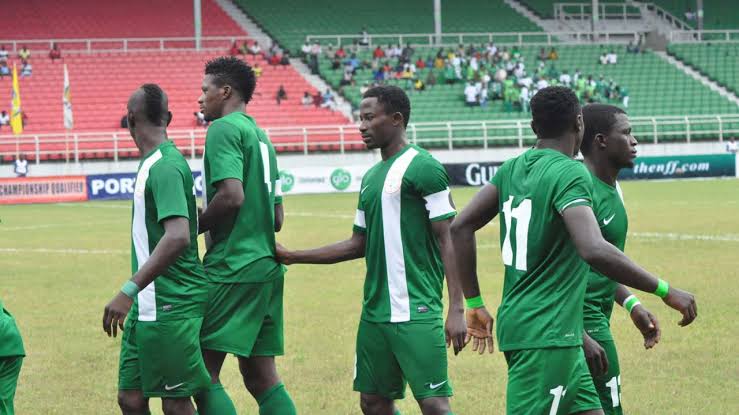
Chijioke Gabriel
Nigerian football fans have reacted with a mix of frustration, disappointment, and concern following the home-based Super Eagles’ Tuesday night 1-0 loss to Senegal in the ongoing African Nations Championship (CHAN) fixture played in Zanzibar.
The defeat, which has sparked lively debate across social media and local sports forums, has been viewed by many as another sign of decline in Nigeria’s domestic football structure. For some fans, the performance of the CHAN Eagles—made up exclusively of players from the Nigeria Premier Football League—was uninspiring, lacking the cohesion, technical discipline, and urgency expected at the international level.
“What exactly are we doing with our league if this is what it produces?” one fan posted on X (formerly Twitter). “Senegal outclassed us in every department. There was no spark, no confidence, and no chemistry in the team.”
Critics also questioned the coaching staff’s preparedness and tactical decisions. Some users accused the Nigeria Football Federation (NFF) of neglecting grassroots development and failing to build a solid home-based team over the years. “This is not just about one loss. It’s a reflection of years of mismanagement,” commented a user on a Nigerian football forum. “We are not investing in the local league, so how do we expect the CHAN Eagles to compete?”
Others were more measured in their response, calling for patience with the team and acknowledging that Senegal’s home-based side has become one of the strongest in Africa. “We shouldn’t always rush to condemn the players,” one Facebook user wrote. “The system needs fixing—these boys need more exposure and better preparation.”
The loss has intensified ongoing conversations around the status of Nigeria’s domestic football and its contribution to national team success. While the full Super Eagles squad often relies on foreign-based stars, the CHAN competition is designed to showcase domestic talent—making poor performances even more worrying for football stakeholders.
Despite the result, some optimistic fans are hopeful that the team can regroup ahead of subsequent fixtures. “This is a wake-up call,” said Samuel Ibe, a football blogger. “We still have talented players in the league, but they need structure, motivation, and consistent training camps.”
As the dust settles, many Nigerians are left asking whether the nation’s once-proud football identity can be rebuilt—starting from the grassroots.
